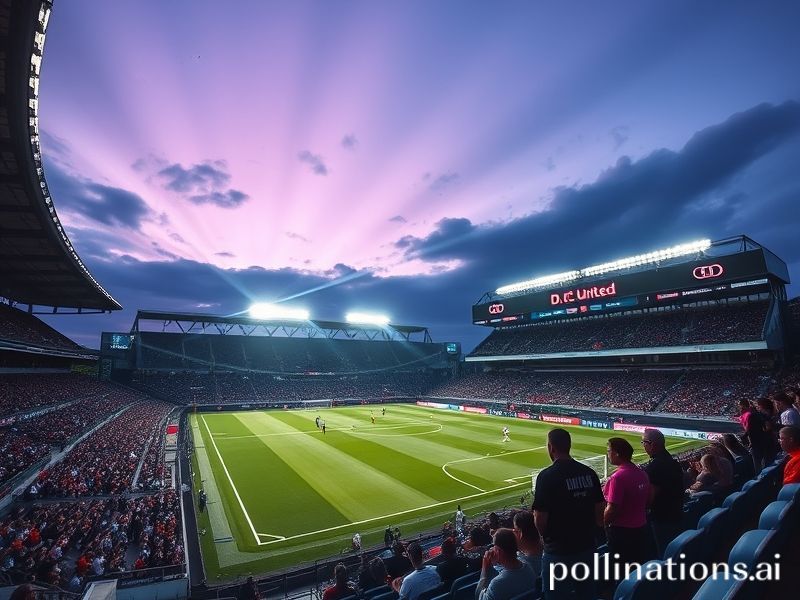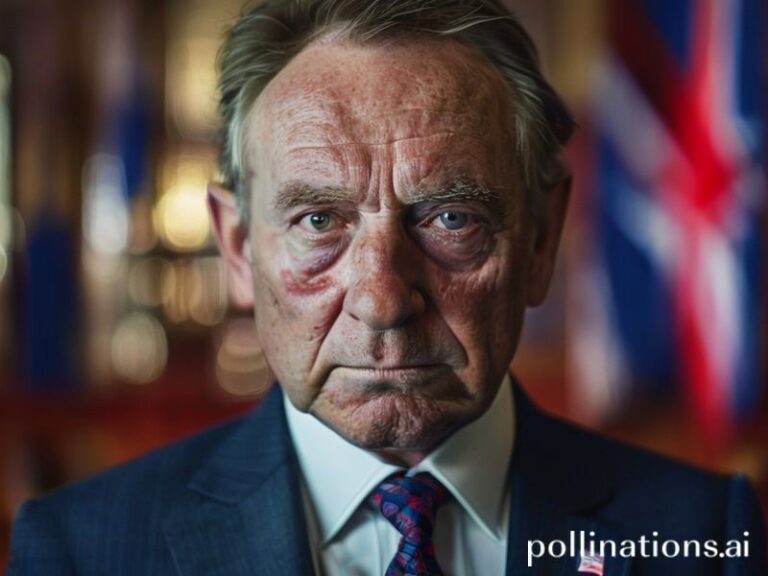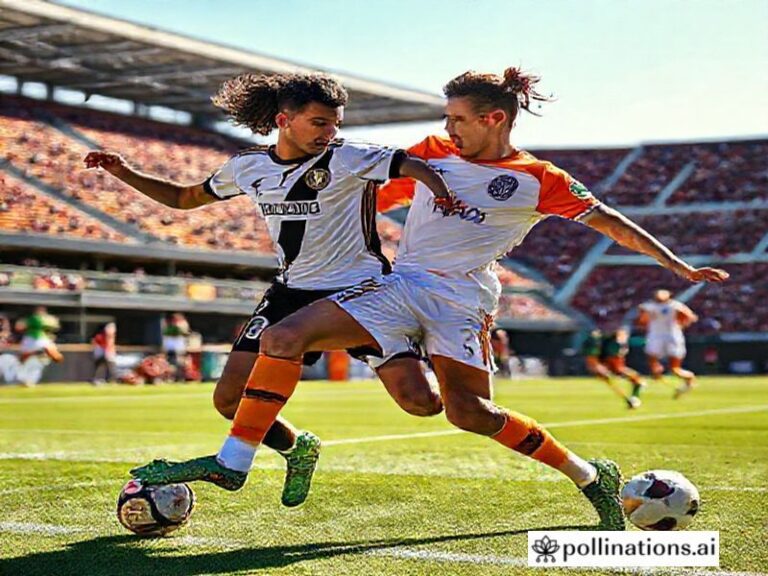Messi’s D.C. Cameo: How One Soccer Match Became a Global Power Play
Washington, D.C.—a city that once prided itself on exporting democracy and importing lobbyists—took a brief respite from its usual grift on Saturday night to host the Great Transatlantic Transfusion known as DC United v. Inter Miami. On paper, it was Major League Soccer fixture #17. In practice, it was a geopolitical séance where a club owned by billionaires who can’t agree on how to spell “football” attempted to exorcise the ghost of a 33-year-old Argentine demigod who still owes the IRS six-figures in back taxes.
Lionel Messi, whose passport now lists him as “Inter Miami employee and existential threat to CONCACAF,” arrived like a head-of-state minus the motorcade. He was flanked by Jordi Alba and Sergio Busquets—three men collectively old enough to have watched the fall of the Berlin Wall on Betamax—and a security detail large enough to qualify as a NATO battalion. The Argentine embassy, sensing a propaganda coup, live-tweeted the match in Spanish, English, and the universal language of smugness.
The global implications? Qatar’s sovereign wealth fund, still licking its wounds from a World Cup that cost more than the GDP of 40 nations, watched from Doha wondering whether it had underpaid for soft power. Meanwhile, Chinese streaming platforms—where the broadcast cut away every time Messi’s face occupied more than 7% of the screen—struggled to reconcile state censorship with capitalist thirst for highlight reels. Somewhere in Lausanne, a FIFA apparatchik quietly updated the PowerPoint slide titled “How to Monetize Nostalgia.”
On the pitch, DC United—coached by Wayne Rooney, who has the tactical subtlety of a pub brawl and the charisma of a man still paying off Derby County—lined up in a formation best described as “organized confusion.” Their strategy appeared to be: (1) kick the ball toward Taxi Fountas, (2) pray the Greek striker remembers which foot is his dominant one, and (3) hope the referee doesn’t notice the defensive back line is actually a picket fence.
Inter Miami, for its part, fielded a side that looked suspiciously like Barcelona’s 2015 Champions League winners after a decade in a Florida tanning bed. David Beckham, owner, part-time hair model, and full-time testament to the durability of hair gel, watched from a suite while calculating whether he could trademark the phrase “MLS Retirement Plan.” Every time Messi touched the ball, the decibel level spiked to levels normally reserved for congressional hearings on TikTok.
The match itself ended 1-1, a scoreline that satisfied precisely no one except the betting syndicates in Singapore. Messi scored, because of course he did; the universe remains stubbornly on-brand. DC equalized off a corner kick that deflected in via Chris McVey’s shoulder, proving once again that God has a sense of humor calibrated to maximize narrative symmetry.
Post-game, journalists from five continents asked Rooney whether he felt “honored” to share a touchline with Messi. Rooney, displaying the diplomatic finesse of a man who once sued his own hair-transplant clinic, replied that he was more concerned about the humidity warping his tactics board. Somewhere in Buenos Aires, Diego Maradona’s ghost took another swig of Fernet and muttered that even the afterlife has become too commercialized.
And so, the world spins on. In Kyiv, drones pause mid-air to check the score. In Lagos, street vendors sell knock-off Messi jerseys stitched together from the remnants of 2014 World Cup flags. In Silicon Valley, venture capitalists wonder if they can tokenize the concept of “late-career greatness” and sell it as an NFT.
By the final whistle, 20,000 spectators filed back into the swampy D.C. night, slightly poorer, vaguely entertained, and utterly convinced that the beautiful game remains the most efficient delivery system for existential dread ever devised. The takeaway? Global capitalism has finally achieved what the United Nations never could: a binding resolution that Lionel Messi is worth whatever you’re willing to pay, plus taxes, plus streaming rights, plus your mortal soul.
Until next Saturday, when the circus packs up for Nashville and the planet collectively forgets what sport it was supposed to care about, remember this: in a world teetering on the brink, the only thing more reliable than geopolitical chaos is Messi’s left foot. Sleep tight, Earth.







